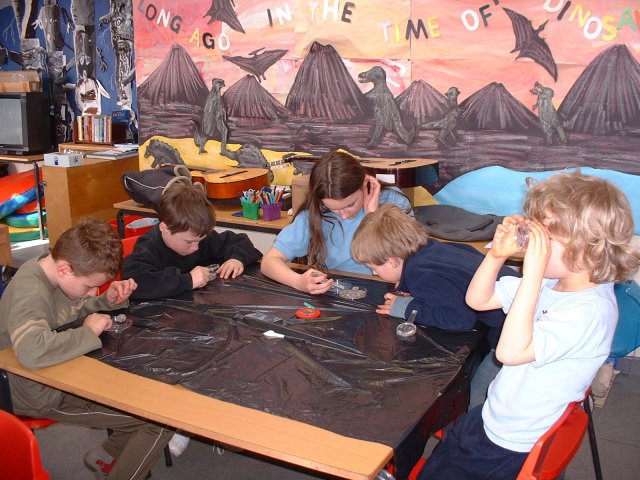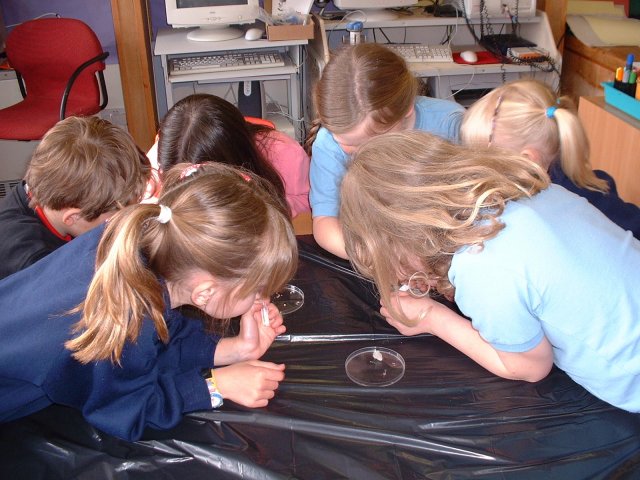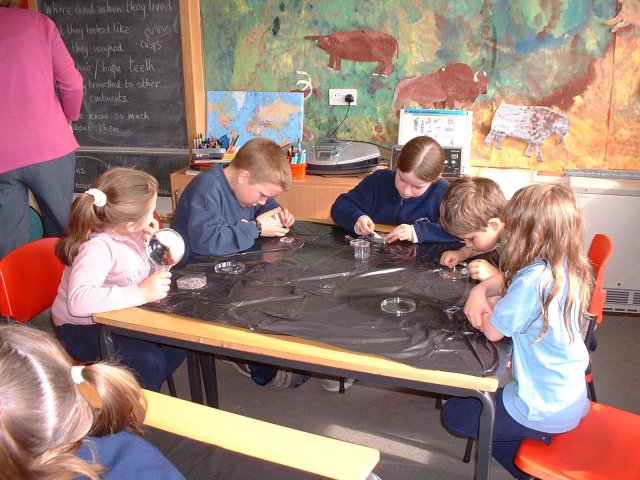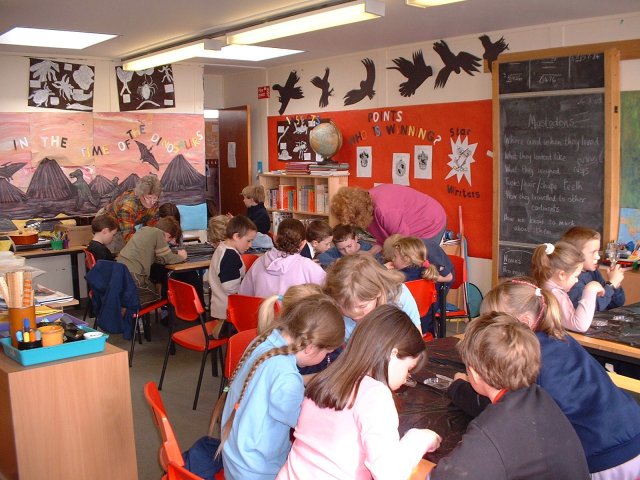
The Matrix that the children are talking about here is the dried mud collected from around the skeleton of a Mastodon found underneath the pond in the garden of a family in New York State, USA
RESEARCH FOR CORNELL UNIVERSITY
Yesterday we all went to Mrs. Russellís classroom and we were doing research for Cornell University New York State, which Mrs. Lindsay got from a friend of hers. We were looking for mastodon hair twigs leaves and other things that were all 9000 years old.
Colin.Yesterday we all went into Mrs. Russellís classroom to look at matrix from Cornell University in New York State America. We were finding out about Mastodon matrix.
Annie
Mastodons
Mastodons lived in the northern hemisphere around 9000 years ago. They looked like mammoths but with less curly tusks. They had long reddish brown hair to keep them warm. They had toes. They had different teeth from mammoths for eating different things. They weighed a ton to a ton and a half. If they fell through the ice they couldnít get out because they were so heavy. They travelled to other continents by crossing over the ice that covered all of the sea. We know so much about them because we looked at their skeletons and found out from them.
By Lisa Robertson

Mastodons
Studying Mastodon matrix
Yesterday the little class went in to the big class & we were finding out about twigs shells & leaves, seeds hairs and bark from when mastodons were alive.
Kaitlin
Mastodons.
Last week we watched an American video about Mastodons in the little class. There was a family who lived in Hyde Park, New York State and they were digging up their pond when the dad found a HUGE bone. He took it to an expert and he said that it was the leg bone of a Mastodon! The fatherís daughter took the bone to her school for show & tell and her teacher told the class that Mastodons roamed the earth for a long time and the class were quite surprised. The family phoned up the University of Cornell to see if they wanted to come and see if there were any more bones underneath the pond. There were and there was a whole Mastodon skeleton!
The Mastodon weighs up to 1 and a half tonnes and itís tusks were 8 feet long! They travelled to other continents by going over the ice but they had to be careful because they might have gone through the ice and died. Thatís how the Mastodon was under the familyís pond.
Last Wednesday Mrs. Lindsay got a package from Cornell University and it had Mastodon Matrix in it. The next day we inspected it and found twigs, stones, jumper fluff, shells and even what looked like fossils! Mrs. Lindsay then put some of it under a computer-generated microscope and it was really cool.
Craig Lindsay

Mastodons 2
Mastodons are like Mammoths only smaller. They lived about nine thousand years or more ago. They travelled round half the world over the sea when it was frozen over. They were big and hairy and had tusks a lot straighter than Mammoths. They weighed about one and a half tons. Their teeth were big but not as sharp as the Mammoths. Their hair was bristly and thick to keep them warm. Over the ice they travelled to different continents.
We know a lot about them by their bones and tusks. You can tell how old they are by their tusks. The tusks have circles and you count them to see how old they are. If the bones have been scattered the animal may have been killed in some way.